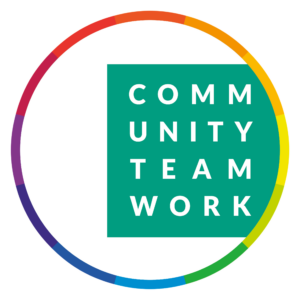

Enjoy our Spring Celebration Video Recap

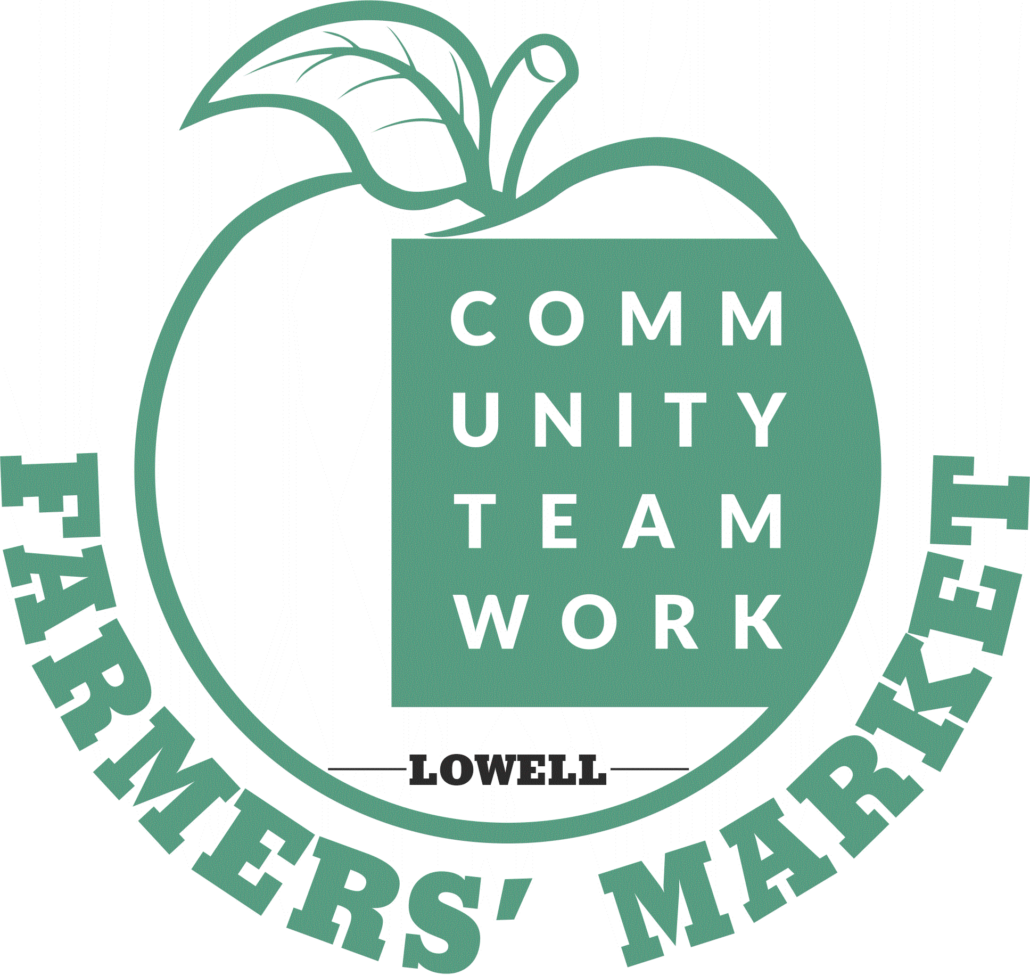

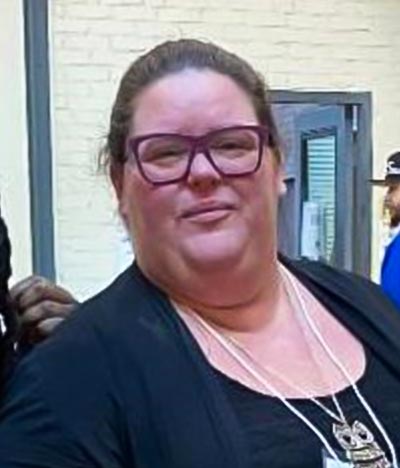
CTI’s YouthBuild Program Manager, elected to Vice President of the Massachusetts YouthBuild Coalition
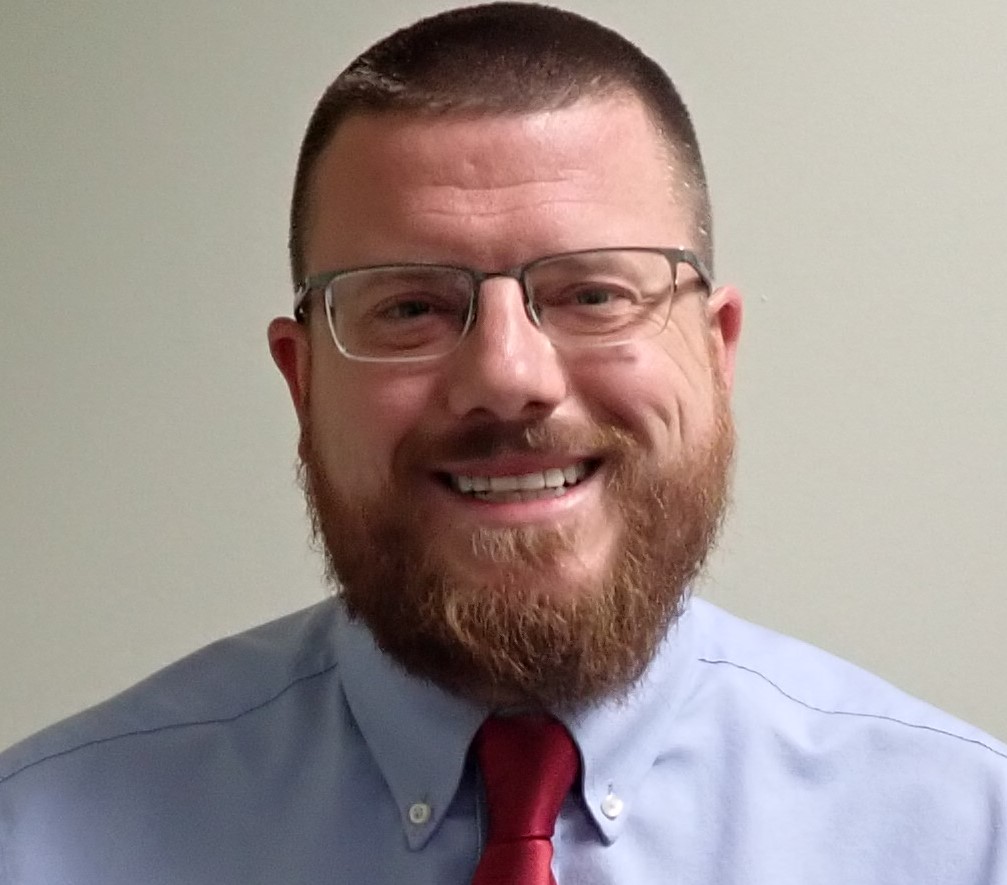
Joins CTI as Deputy Division Director of Residential Programs

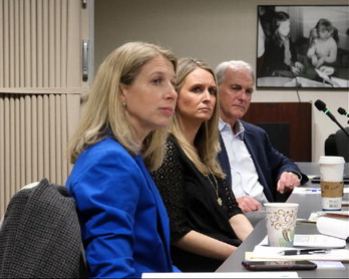
Access to safe and stable housing should be available to anyone who needs it, and is a basic human right. The roots of homelessness and housing insecurity can be found deep in our history. In their Commission on Homelessness and Poverty, The American Bar Association says “Poverty and homelessness in the United States are largely outgrowths of institutionalized racism”. If we’re going to talk about homelessness, we have to talk about the fight for equity in housing.
The impacts of racism on housing and homelessness may not be readily obvious. For example, arrests and convictions for drug possession skew heavily toward black users, despite equal rates of usage across races. A felony drug conviction may prevent someone from being approved for a loan, or for a public housing unit, and may keep them from working at a level sufficient to pay for housing. Inequity in the legal system translates to inequity in the housing market, making housing less available to BIPOC (Black, Indigenous, and People of color) renters and buyers.
Sometimes though, the impacts are obvious. The history of redlining in America is well documented, and the impacts are still resonating in our neighborhoods. Redlining, the practice of systematic denial of services (usually financial services like home loans), to residents of certain neighborhoods or communities associated with a certain racial or ethnic group, was officially outlawed in 1968. However, the impact on neighborhoods is still evident, contributing to significant wealth gaps between white homeowners and BIPOC home owners.
Ending homelessness also means preventing it. Eviction rates are badly skewed, with BIPOC renters being evicted at around twice the rate of white renters. The Eviction Lab at Princeton University shows a recent trend of evictions targeting particularly BIPOC women for eviction at rates significantly higher than any other group. This cycle of eviction, even when it doesn’t lead to homelessness, creates trauma and unnecessary disruptions for individuals and families that are already on the edge.
Homelessness also shows us clearly the inequality that still exists in America. While black people make up about 13% of the population, they represent nearly 40% of the people experiencing homelessness. Nationally, we see that other groups are overrepresented as well, including Native/Indigenous Americans, Hispanic/Latinx folks, and Native Alaskans and Hawaiians. Simply put, the inequality in America is visible in our shelters and on our streets.
Evictions, homelessness, and unequal access to resources all add up to increased inequity – and that inequity makes creating change for these communities even more of a challenge. Part of creating change is acknowledging that change HAS to happen. We understand that talking about these topics, and the history they bring up, is hard, and sometimes uncomfortable. But that discomfort is nothing compared to the suffering of individuals who are sleeping outside, or in a car, or bouncing from shelter to shelter. Surely, they have suffered enough…
Right now, community partners are working together to make 300 units of housing available for people experiencing homelessness. We encourage you to support those units in whatever way you can – through advocacy, reducing stigma by talking about the need for affordable housing, or by supporting projects when they come up for discussion. Housing ends homelessness, and we all have a part to play.
Yun-Ju Choi
Chief Executive Officer
Coalition for a Better Acre
Cathy Mercado
Executive Director
Merrimack Valley Housing Partnership
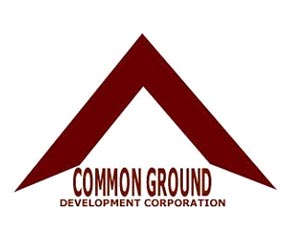
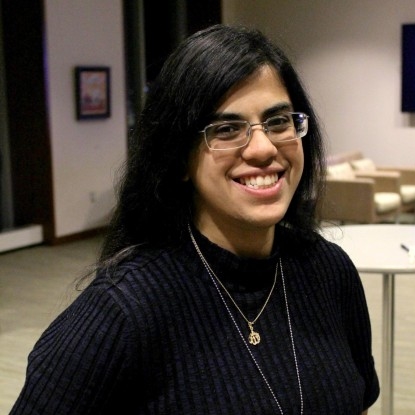
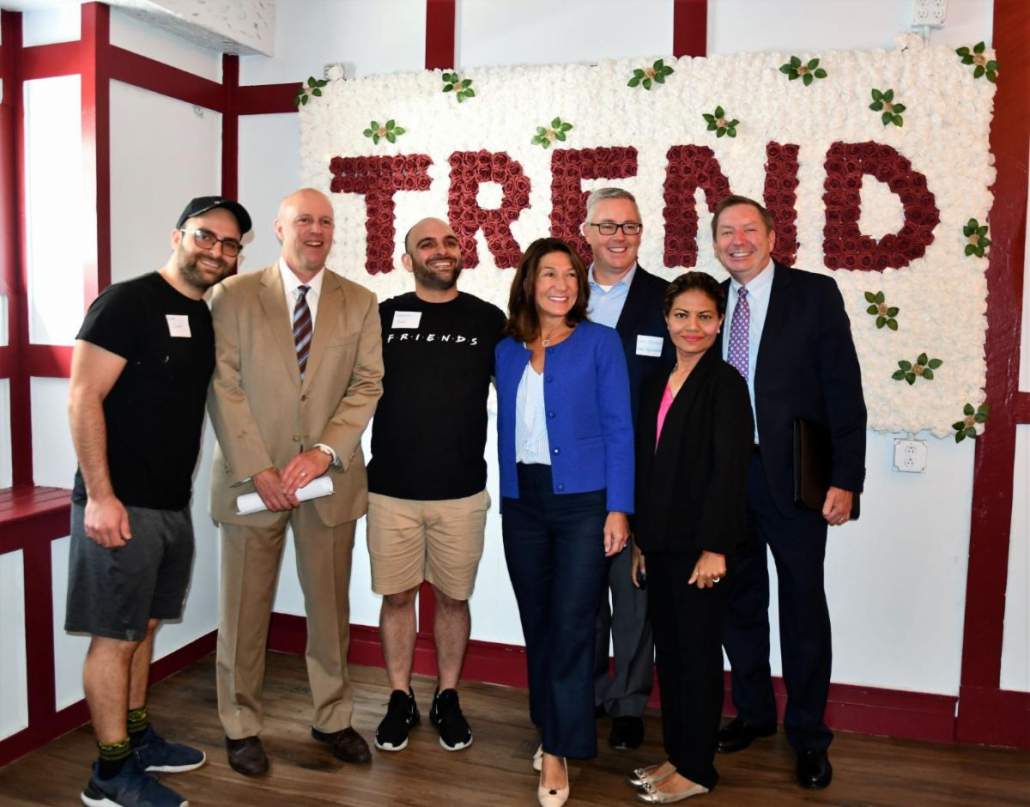
Sign up for our E-Center newsletter for the latest news and events from Community Teamwork.
Pam Houlares is a native Bostonian born into a large Greek family. She grew up in a large extended family with aunts, uncles and cousins in the Boston area. Both sisters, including her twin, experienced a strong bond with their Greek culture and identity. After graduation from UMass Amherst, Pam’s older sister became a nun in Greece and has lived there for about 50 years. Her twin sister, Natalie, is a real estate broker with Sotheby’s in Boston.
In Pam’s 37 years in education, she began as a Spanish teacher, Curriculum Coordinator, and ultimately, a Principal of Jonas Clarke Middle School in Lexington, MA. After retirement, Pam worked in two colleges as an Adjunct Professor instructing courses in administration and continues as a Spanish tutor in her home -town.
During 2016 – 2020, Pam served as the President of the Hellenic Women’s Benevolent Association, a non-profit that oversees the Hellenic Nursing Home in Canton, MA. In fact, Pam’s mother, Jennie, was one of the founders of the nursing home in 1973. Pam continues to serve on the Board of Directors at the Hellenic Home.
Pam and Jim have four grandchildren, James, Conor, Catherine and Theodore, who live nearby, Aside from some babysitting, Pam and Jim feel very fortunate that they are very close and celebrate holidays and family events together.
Pam’s husband, James, has devoted his entire career to early childhood education. Jim displays that same enthusiasm and love of children to this day, and is adored by his children and grandchildren, alike. Both Pam and Jim are pleased that to continue to be a part of the CTI family and have contributed greatly to the Early Education programs at Community Teamwork.
James Houlares was born and raised in Auburn, Maine, He has a twin sister and also married a twin who has a twin sister as well. James has an older and younger brother as well. James and Pam have been married since 1974 and lived in Wellesley and now South Natick. They have two children, Nathaniel and Elena, named after my father-in-law and mother. Nathaniel and Christina have two children, Catherine (2.5 years old) and Theodore (7 months). Elena and John have two children, James (9) and Conor (7).
In1962, Jim arrived in Boston to attend the Hellenic College and Holy Cross School of Theology to earn a Bachelors and an advanced degree. His studies continued at the University of MA in Amherst where he earned his Masters. Jim’s first job with Head Start was as a teacher in Lewiston, Maine 1969 – 1971. After earning his Masters, in 1973, he was hired as an Education Coordinator at the Head Start program at Community Teamwork. At that time, CTI served 120 children in six classrooms. When Jim retired in 2005, the Agency served more than 516 Head Start and Early Head Start children.
During Jim’s 32 years at Community Teamwork, he was involved with many challenging and exciting initiatives including:
MA Education Coordinators Association
CDA Advisor and Instructor
State Supplemental Funding for Head Start Programs
Planned and designed the James A Houlares Early Learning Center in Lowell
Chaired the State Head Start Association
Hiring the First Executive Director of the MA Head Start Association
Chaired the New England Head Start Association
Jim presently serves on the following boards: New England Head Start (NEHSA), National Head Start (NHSA), and the Thom Child and Family Services.
Jim is forever grateful to Community Teamwork Inc. for the opportunities it offered to him in the field of early learning and care for children and families, and Community Teamwork is forever grateful to Jim for his contributions to the field of Early Learning and his additional contributions to Community Teamwork over the past few years.
Community Teamwork is celebrating Bill Lipchitz’s retirement after a legendary 51-year career. He currently serves as the Director of Real Estate Operations for Common Ground Development Corporation, a Community Teamwork subsidiary that develops affordable housing for low-income families in northeast Massachusetts. He oversees several other Community Teamwork subsidiaries, including Merrimack Valley Housing Services, Inc. and Mechanics Hall Corporation, and serves as a Special Assistant to the Executive Director working with the Community Teamwork Board on Board Development and Governance.
Bill’s career at Community Teamwork started in 1971 when he was hired as a Community Planner. Initially, Bill was assigned to the Town of Dracut to assist the Town in identifying and applying for grants. Bill was quickly promoted to Deputy Director of the Agency and served in that position for many years. Bill transitioned to oversee the Agency’s subsidiary, to assist Common Ground in implementing its vision of building and managing a portfolio of affordable housing. Common Ground has grown, and now supports family and senior housing in Methuen, Lowell, Acton, and Westford. Common Ground is currently working on new developments in Acton and Dracut and is assisting Community Teamwork and its partners in developing at least 300 units of permanent housing for homeless individuals.
Bill has devoted his life’s work to Community Action and to the City of Lowell, not only at Community Teamwork but in his many other roles including serving as Clerk of the Lowell Development and Financial Corporation, President of the Center City Committee, and on the Boards of the Cambodian Mutual Assistance Association (CMAA), Lowell Heritage Partnership, and the National Community Action Foundation. Bill was also deeply involved with the Friends of Lowell High School and Shedd Park Baseball (where he served as Baseball Commissioner!)
Bill has also mentored many staff at Community Teamwork and beyond. His love of his family, City, and work all centered Bill’s life and career. Passing on his passions and knowledge has helped move the career path forward for many staff and community members over the years.
Bill holds a Bachelor’s in Chemistry from Lowell Technological Institute (now UMass Lowell), a Master’s in Organic Chemistry and a Master’s in Urban Affairs from Boston University. We are all fortunate that Bill left his first career teaching at the college level. Bill is the proud father of Rebecca and Will and grandfather of five.
Aleksandra Tugbiyele (née Ward) is a Development professional turned Executive Assistant that builds relationships to make positive change. Her Lowell story began when she transferred to UMass Lowell and earned her BA in English. Since then, Aleksandra has helped raise nearly $100M for local and national non-profit organizations including the Children’s Trust Fund, UTEC, Acre Family Child Care, and Jumpstart for Young Children.
Aleksandra is a passionate advocate and volunteer in our community. She is currently serving on the Board of Trustees for Community Teamwork, Inc,; is a member of the DEI Consortium- Lowell, and was recently appointed to the Massachusetts Commission on the Status of Black Men and Boys. In her current role within the Office of the President at Middlesex Community College (MCC), Aleksandra provides administrative and operations support. She is also a part- time student! Above all, her favorite “job” is “Best Friend and Wife” to Bobby, and “Mom” to Sammuel and Ellis.
Originally from Worcester, Massachusetts, Aleksandra is from a family of heroes. She is the proud daughter of a teacher and a fire-fighter, and is the big sister to a nurse. She adores bagpipes, describes fire truck sirens as a “lullaby”, and drinks mostly Polar seltzer and Bustelo coffee . In her spare time she enjoys supporting small businesses, and together with her children practicing Kung-Fu and tending their plot at the Rotary Park community garden.
Bobby Tugbiyele (2-B-L-AY) is the Founder and CEO of The Leap Network, LLC, a multi-specialty recruitment firm specializing in the staffing and placement of medical professionals and administrators. Prior to launching his firm in 2017, Bobby was the Recruiting Manager for Lowell Community Health Center and oversaw the career services and job development arm of Community Teamwork Inc.’s Workforce Development division.
He currently serves on the Board of Corporators for Lowell General Hospital, a board member for the Massachusetts Workforce Association, and is a member of the Middlesex 3 Coalition, which is focused on economic development, job growth and retention in Middlesex County. He is an advisory board member for UMass Lowell’s College of Fine Arts, Humanities and Social Sciences (FAHSS) as well the Entrepreneurship-For-All (EForAll) business accelerator program. He is a former Trustee of the Merrimack Repertory Theatre and former President of the Center City Committee, which advocated and spearheaded public-private collaborative projects for the betterment of the downtown area. He is a Co-Founder and organizer of The Foundation Mixer, a networking event series for ascending professionals to foster greater connections, engagement and collaboration.
In 2018, Bobby was awarded Young Professional of the Year by the Greater Lowell Chamber of Commerce. Bobby has a Bachelor of Arts in Political Science and minor in History from the University of Massachusetts Lowell and a Graduate Certificate in Nonprofit Management and Leadership from Boston University.
Last year, Bobby was a first time City-Wide candidate for Lowell City Council who placed 4th place with over 4100 votes. He currently resides in Downtown Lowell with his wife, Aleksandra, and two sons, Samuel and Ellis.
